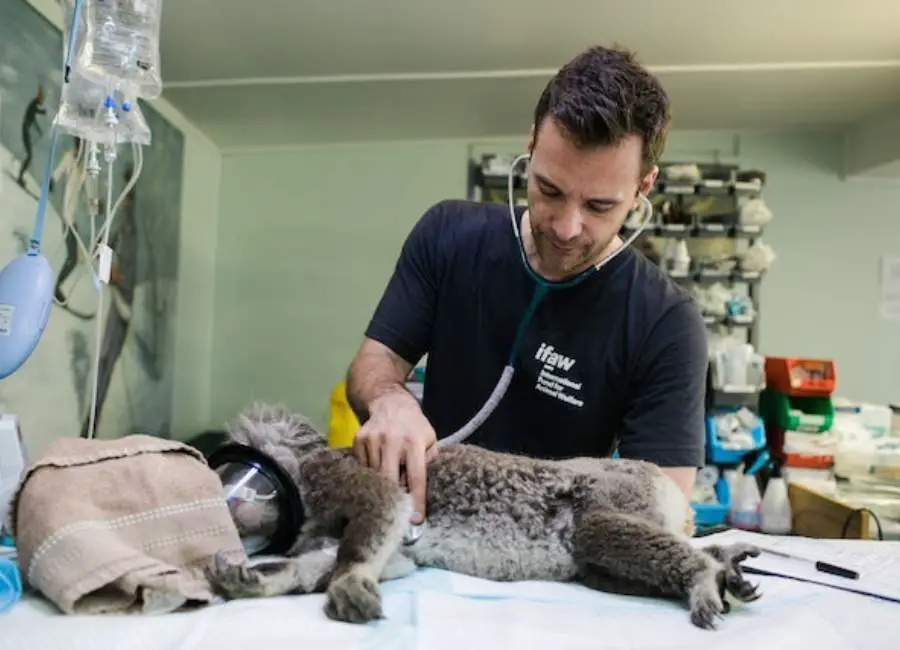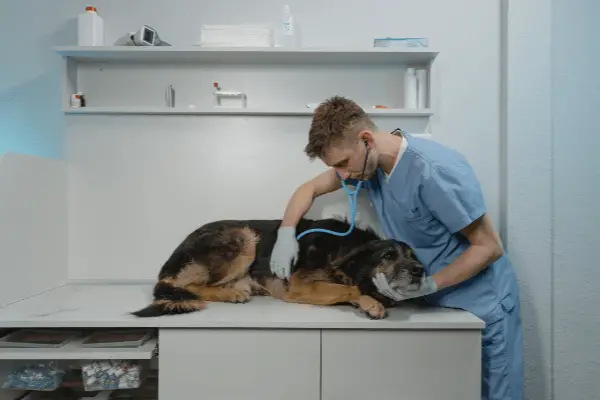13 Top Benefits Of Spaying And Neutering Dogs

Responsible dog ownership includes spaying and neutering your dog, which has several advantages for you, your pooch, and even your community.
Spaying or neutering your dog may benefit both their physical and emotional well-being, from preventing significant health issues like uterine infections and breast cancer in female dogs to lowering the number of strays on the streets.
Spaying or neutering your pet is typically safe and can be done as early as six months of age, despite some common misunderstandings about the process.
Why delay when there are so many benefits to having your dog spayed or neutered?
Continue reading to discover additional advantages of this crucial process.
Benefits Of Spaying And Neutering Dogs
Here are some common benefits of spaying and neutering dogs:
Reducing the Risk of Certain Behavioral Issues
The likelihood of some behavioral problems, including excessive barking, digging, and chewing, can be decreased by spaying and neutering.
These actions are frequently linked to boredom, worry, and anxiety, which may be made worse by hormone fluctuations.
Promoting Longevity
By lowering the chance of developing certain illnesses, such as malignancies and infections, spaying and neutering can increase longevity in animals.
Because they are less likely to sustain injuries or get into confrontations with other animals, dogs that have been spayed or neutered may also enjoy longer, healthier lives.
Curbing Roaming and Aggressive Behavior
Unneutered male dogs may be more inclined to roam and act aggressively, especially against other male dogs.
By the control of these tendencies, neutering can help prevent damage or conflict with other animals while also making the dog easier to handle.
Reducing Marking and Urination Problems
Male dogs that haven’t been neutered may be more prone to urinate on items both inside and outside the house as a way of marking their territory.
By reducing this activity, neutering a dog makes them easier to housebreak and less likely to cause property damage.
Reducing the Risk of Prostate Problems
The likelihood of prostate issues, including inflammation and enlargement of the prostate gland, can be decreased by neutering male dogs.
These problems may result in discomfort, pain, and urination problems.
Reducing the Risk of Pyometra
The illness known as pyometra, which can be fatal, develops when the uterus contracts an infection.
The risk rises as the dog matures, and it is more prevalent in female dogs who have not been spayed. Pyometra is not a danger after spaying.
Reducing the Risk of Mammary Cancer
Mammary cancer, one of the most prevalent types of cancer in female dogs, can be decreased by spaying female dogs.
The operation eliminates the danger of this kind of cancer by removing the uterus and ovaries.
Eliminating Heat Cycles
Approximately twice a year, female dogs go into heat, which can result in a range of behaviors, including loud vocalization, pacing, and restlessness.
When heat cycles are eliminated by spaying, life is more comfortable for both the dog and its owner.
Preventing Unwanted Litters
Preventing unwanted litters is among the main advantages of spaying and neutering pets.
Millions of dogs wind up at animal shelters every year, and many of them are put to death for lack of room or supplies.
By lowering the number of dogs entering shelters, spaying and neutering can help lessen the instances of euthanasia.
Reducing the Risk of Testicular Cancer
One of the most frequent types of cancer in male dogs is testicular cancer, which can be decreased by neutering male dogs.
The testicles are removed during the operation, hence reducing the chance of this particular malignancy.
Saving Money
In the long term, spaying and neutering can reduce costs.
Unplanned litter can be costly to care for, and the expense of addressing health problems related to reproductive organs can be exorbitant.
Owners can prevent the expense of rearing puppies and cut down on veterinary expenses by spaying or neutering their dogs.
Reducing Noise Pollution
Male dogs who have not been neutered may be more inclined to bark excessively, especially if they smell a female in heat.
By reducing this tendency, neutering a dog can improve both the dog’s and the owner’s quality of life.
Promoting Better Overall Health
Improved general health in dogs can result from spaying and neutering.
These treatments can lessen the chance of reproductive-related health difficulties as well as other kinds of health problems, such as certain malignancies and infections.
Learn more about the advantages of regular vet check-ups.
Frequently Asked Questions
Can I still breed my dog if I spay or neuter them?
No, having your dog spayed or neutered will prevent them from having puppies.
It’s crucial to thoroughly evaluate the obligations and potential difficulties that come with breeding your dog and to deal with a competent breeder if you’re interested in doing so.
Are there any risks associated with spaying or neutering my dog?
Spaying or neutering your dog carries some dangers, much like any surgical treatment, such as infection, bleeding, or negative anesthetic responses.
The benefits of the procedure typically outweigh the potential risks, and these risks are generally low.
Learn more about the benefits of vaccinations for dogs.
Will spaying or neutering my dog change their personality?
Spaying or neutering your dog typically will not significantly change its personality.
However, it may reduce certain unwanted behaviors such as roaming, aggression, and urine marking in male dogs.
Is spaying or neutering my dog expensive?
Depending on your location, your dog’s size, and other circumstances, the cost of spaying or neutering your dog may vary.
To assist make the treatment more affordable for pet owners, several animal shelters and rescue groups provide low-cost spay and neuter services.
At what age should I spay or neuter my dog?
The breed, size, and general health of your dog will determine the ideal time to spay or neuter them.
In general, it’s suggested to spay or neuter dogs between 4 and 6 months of age.
But, based on your dog’s particular requirements, your vet can offer specialized advice.
Will spaying or neutering my dog cause them to gain weight?
If your dog is not provided an appropriate diet and exercise regimen after being spayed or neutered, it may put on weight.
However, most dogs should not have considerable weight gain after spaying or neutering if they follow a good diet and get frequent exercise.
How long does it take for a dog to recover from spaying or neutering?
The length of time needed for recuperation following spaying or neutering your dog will vary depending on their age, general health, and the type of treatment they get.
On average, two to three weeks following surgery, the majority of dogs will be totally recovered.
Follow your vet’s post-operative care recommendations at this time to make sure your pet recovers quickly.
Conclusion
In conclusion, spaying and neutering your dog can have a variety of advantages, from minimizing the chance of wandering and territorial marking to preventing significant health issues including enlarged prostate instances and infections.
Males that have been neutered also exhibit decreased desire, wandering, conspecific mounting, and frequency of urine marking.
In the end, it’s crucial to assess the benefits and drawbacks before choosing a choice. Take into account aspects like the illness risk for your dog as well as your lifestyle.
Spaying or neutering can also aid in lowering the population of undesirable dogs in a neighborhood, but there are some drawbacks, including a higher risk of cancer and autoimmune illnesses.


![How to Treat a Broken Dog Nail [A Step By Step Guide] How to Treat a Broken Dog Nail](https://petcreeks.com/wp-content/uploads/2023/09/igor-bumba-V9JMh9A-10E-unsplash.jpg)



